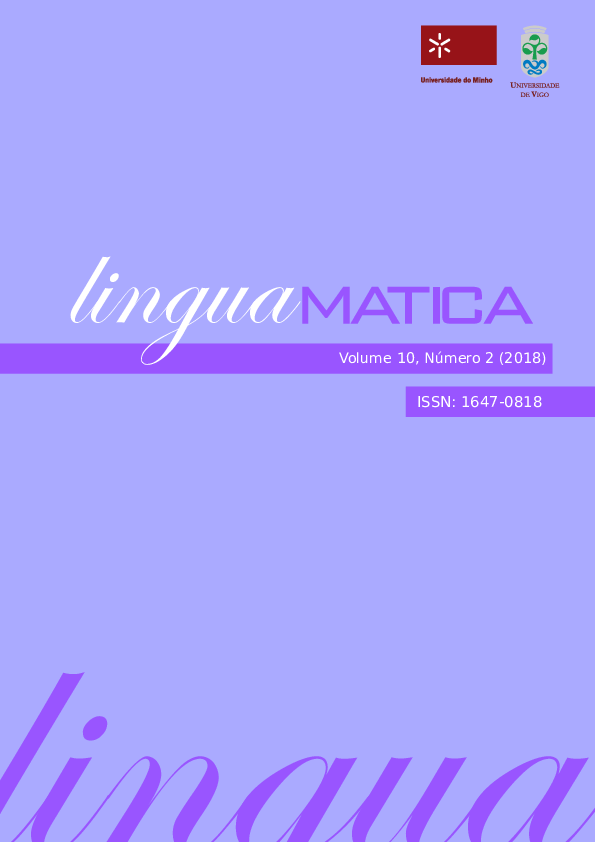EP--BP Paraphrastic Alignments of Verbal Constructions Involving the Clitic Pronoun lhe
Abstract
This paper presents the alignment of verbal predicate constructions with the clitic pronoun lhe in the European (EP) and Brazilian (BP) varieties of Portuguese, such as in the sentences
Já lhe arrumaram a bagagem --- Sua bagagem está seguramente guardada "His baggage is safely stowed away", where the EP dative proclisis lhe contrasts with the BP possessive pronoun sua. We have selected several different paraphrastic contrasts, such as proclisis and enclisis, clitic pronouns co-occurring with relative
pronouns and negation-type adverbs, among other constructions to illustrate the linguistic phenomenon. Some differences correspond to real contrasts between the two Portuguese varieties, while others purely represent stylistic choices. The contrasting variants were manually aligned in order to constitute a gold standard dataset, and a typology has been established to be further enlarged and made publicly available. The paraphrastic alignments were performed in the e-PACT corpus using the CLUE-Aligner tool. The research work was developed in the framework of the eSPERTo project.
Copyright (c) 2019 Ida Rebelo-Arnold, Anabela Marques Barreiro, Paulo Quaresma, Cristina Mota

This work is licensed under a Creative Commons Attribution 4.0 International License.
Authors who publish with this journal agree to the following terms:
- Authors retain copyright and grant the journal right of first publication with the work simultaneously licensed under a Creative Commons Attribution License that allows others to share the work with an acknowledgement of the work's authorship and initial publication in this journal.
- Authors are able to enter into separate, additional contractual arrangements for the non-exclusive distribution of the journal's published version of the work (e.g., post it to an institutional repository or publish it in a book), with an acknowledgement of its initial publication in this journal.
- Authors are permitted and encouraged to post their work online (e.g., in institutional repositories or on their website) prior to and during the submission process, as it can lead to productive exchanges, as well as earlier and greater citation of published work (See The Effect of Open Access).













